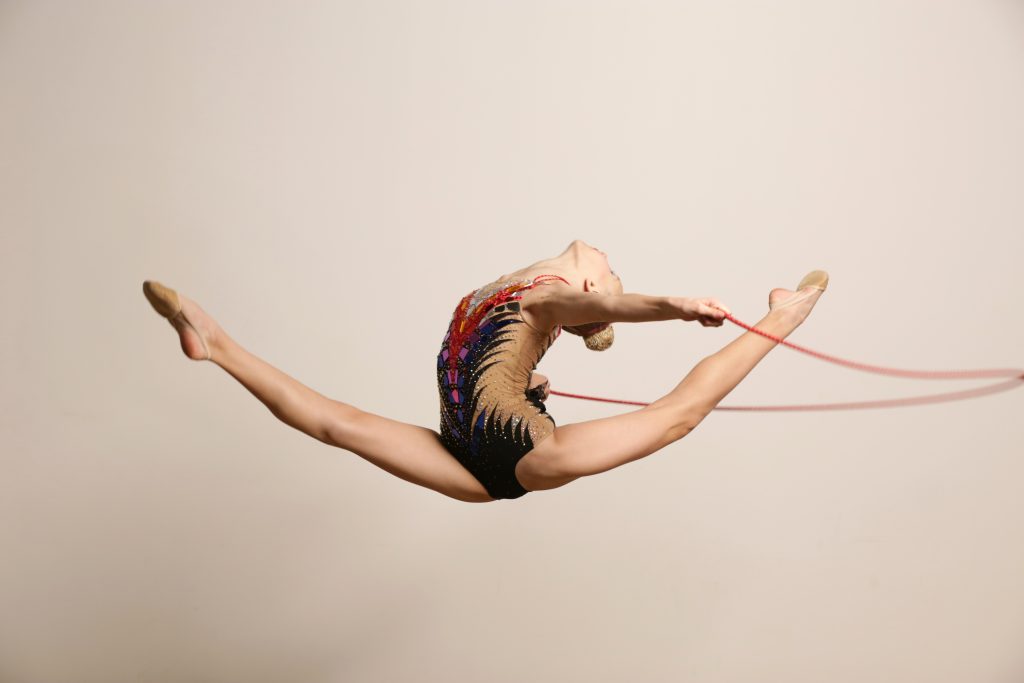Although only an Olympic sport since 1984, competitive rhythmic gymnastics began in the 1940s. Hallmarked by combining elements of ballet, gymnastics and dance, rhythmic gymnasts manipulate rope, clubs, hoops, balls and ribbon in their quest to combine beauty and grace into a well-received routine.
“Over the past few years, U.S. rhythmic gymnasts have been achieving better international competition results than ever before,” said Olga Kofman, owner of Santa Clara’s Bravo Rhythmic Gymnastics Club. “We went from failing to qualify any American rhythmic gymnast for the 2008 Olympics to recently securing spots for two individual athletes for Tokyo 2020, which is the maximum number that can quality from any one country, and achieving historic best finishes in both the individual and group events at the 2019 World Championships.”
Kofman herself has participated in the sport since she was 5. A native of Russia, Kofman competed on the regional, national and international, eventually earning the title of “Master of Sport” — a Russian ranking bestowed upon a national champion — during her 12-year career. Knowing interest in the sport was growing, Kofman began coaching in 2011 and relocated Bravo Rhythmic Gymnastics Club to the facility off Mead Avenue in June of 2018.
The new gym had raised ceilings, a necessity for a sport requiring apparatuses to be tossed high into the air, and the space needed to expand program offerings to meet the growing demand for classes in the Bay Area. Kofman said Bravo Rhythmic Gymnastics Club accommodates girls as young as five and trains them in all five apparatuses, focusing on building flexibility, strength, balance and musicality.
“One of the best parts of rhythmic gymnastics class is that kids get to combine the things they learn, like jumps, turns and throwing the apparatus into a routine set to music,” she said. “During routines, rhythmic gymnasts need to think on their feet and recover quickly from mistakes — both skills that are important throughout life. The sport also combines athleticism with artistry. It provides many opportunities to work on expression and creativity.”
Noting the synergy at Bravo, Kofman said the gymnasts, coaches and parents work together to encourage teamwork and cooperation, regardless of if a gymnast is part of the recreational or competitive program. Students who participate in the competitive program, however, compete in state, regional and national-level events. This past year, Kofman said Bravo gymnasts won state and regional competitions, as well as medaled at the U.S. National Championships. Both the recreational and competitive programs focus on the benefits of the sport.
“Sports participation is great for kids in general, but rhythmic gymnastics also offers unique benefits,” said Kofman. “This sport is an amazing way to develop multiple important abilities at once. Rhythmic gymnasts need to be flexible but strong, precise but creative and individually motivated but cooperative. Plus, practicing these skills in the context of a sport is fun and rewarding. Girls who enjoy dance, music or performing often find that rhythmic gymnastics is the perfect sport for them.”
Bravo Rhythmic Gymnastics Club is at 2911 Mead Ave #0806 in Santa Clara. For more information, visit bravorhythmic.com.
